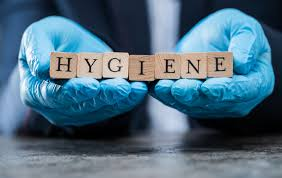HAND HYGEINE - a crucial step that cannot be overlooked
Categories: Health
One of the most crucial things you can do to stop and slow the spread of many diseases is to wash your hands thoroughly. Maintaining good hand hygiene will lessen the possibility of spreading diseases including the flu, food poisoning, and illnesses linked to medical care. The act of eliminating or eradicating microorganisms (germs) on the hands is referred to as "hand hygiene." The single most efficient strategy to maintain your health and stop the spread of disease is to wash your hands properly. You'll learn everything there is to know about hand hygiene in this post.
Maintaining good hand hygiene is crucial for preventing the spread of infections to you and other people. It is one of the best approaches to lower the rate of infections linked to hospital care. The development of multi-resistant pathogens like Methicilin Resistant Staphylococcus Aureus (MRSA) and healthcare-associated illnesses are thought to be directly linked to improper hand hygiene, which has also been identified as a major factor in outbreaks.
In most circumstances, the simplest technique to get rid of germs is to wash hands with soap and water, which is advised for hands that are obviously filthy. You can use an alcohol-based hand sanitizer with at least 60% alcohol if soap and water are not readily available. These hand sanitizers are the most effective in reducing the amount of germs and viruses on hands, and they are advised for routine hand decontamination for all clinical indications, with the exception of when hands are obviously dirty.
The spread of illnesses from one person to another and throughout a whole community, from your home and business to daycare centres and hospitals, can be reduced by keeping your hands clean.
Why to wash hands for maintaining proper hand hygiene?
Simply said, washing your hands thoroughly and frequently will help to maintain your health and the health of others you care about. By washing your hands with soap, you can get rid of germs and lower your risk of getting sick.
Without without realising it, people routinely touch their mouths, noses, and eyes. Touching your face can easily introduce germs into the body, therefore keeping your hands clean is crucial!
While you are cooking or eating, dirty hands can transfer germs to food and beverages. Some of these microorganisms may proliferate in specific foods or beverages and sicken consumers.
Unwashed hands can spread germs to objects like toys, handrails, and doorknobs for youngsters.
With the COVID-19 epidemic, we are going through a particularly difficult moment, thus hand washing is more crucial than ever as we all fight to stay healthy.
At what point should I wash my hands?
You should wash your hands during the course of each and every day. In general, you'll want to wash your hands before:
- If they are obviously filthy
- Food preparation and handling both before and after following a bathroom visit
- After touching contaminated surfaces, such trash cans, the metro, or other heavily trafficked areas
- Following animal contact
- Once you've blown your nose or cleaned your mouth
- Prior to and following the provision of medical care or care for a loved one
- Prior to putting in your contacts
- Prior to making medicine (when applicable)
- Upon returning from an outing in public (i.e., visiting the grocery store). The importance of this particular aspect becomes clearer as the COVID-19 outbreak continues.
Procedure to wash hands?
It's crucial to thoroughly wash your hands. Make sure to wash both of your hands thoroughly, paying particular attention to the thumbs, palms, and tips of your fingers.
The actions listed below describe how to properly wash your hands:
- Saturate hands in water
- Apply enough soap to cover all surfaces of the hands
- Then rub them together palm to palm with interlaced fingers on the right hand's back over the left hand's
- Palms touching and fingers entwined
- Fingers interlaced with backs to opposing palms.
- Rotational rubbing of the right palm with the left thumb grasped there, and vice versa
- Rotational rubbing, back and forth, with the fingers of the right hand clasped in the palm of the left hand, and vice versa
- Wash your hands with water.
- Using a single-use towel, thoroughly dry your hands.
- Towel to close the faucet
Mistakes we usually make while maintaining Hand Hygiene
Even though washing your hands is quite straightforward, there are several steps you should take to be sure you are doing it correctly and leaving no opportunity for viruses or bacteria to survive on your hands.
- BEFORE WASHING, REMOVE ALL HAND AND WRISTBAND JEWELRY. Jewelry could "conceal" germs and viruses from washing and cleaning.
- DON'T wash and dry your hands with the same moist cloth; instead, use a disposable cloth or paper towels to dry your hands after washing them.
- NEVER rinse your hands in a body of still water; always use rushing water.
- Germs grow on moist surfaces, so make sure to use running water, soap, or an alcohol-based sanitizer to get the job done properly. DO NOT use sponges or non-disposable cleaning rags on your hands and call it a "day."
Bottom line
Washing your hands is a quick, efficient approach to get rid of germs and lower your risk of passing on bacteria and viruses that can make you sick. Wash your hands frequently throughout the day, especially after handling food, leaving the house, or after coming into contact with unsanitary surfaces like doorknobs, subway buttons, or handrails.
